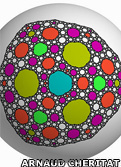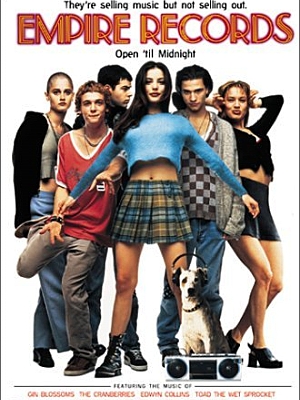Growing up in California meant I was destined to take Spanish in high school. Just about everyone did, and I took three years. I didn't learn much. I pretty much hated every moment of it. As an academic over-achiever, I found myself slumped in the back of that class with the other slackers passing notes. No, I'm not proud, but I decided when I got to college that I'd try something different. I had a language requirement to fulfill to get my degree, and with the number of native Spanish speakers in California, the Spanish classes in college were a great deal harder than I was willing to handle. I envisioned myself never graduating and still slumped in the slacker back of my Spanish class passing notes twenty years later.
I looked over my catalog options and came up with French. It made sense to a History major because a great deal of legal documents in Europe used to be written in French.
French, I found, was more engaging than Spanish. Or perhaps I was more motivated in college than in high school. I'll never know. But in my quest to learn the language, I needed to find more than my text books to read.
As a librarian now...if I wanted to find out what material University of Utah students could get from the library in French, I could look that up specifically by going to the
Marriott Library homepage, clicking on Library Catalog under Research Tools, and then clicking on the box for Advanced Keyword searching. In the search box, I could type in a topic I was interested in, like
politics, and then at the bottom under the Language menu, I could limit to just those item written in French.
As amazing as it was to realize I didn't have to buy a new collection of books for myself to get novels in French, I soon found myself bogged down in books that were far too complex for me to read. I had no idea what they were saying, let alone grasping the complexities of French political satire.
To feel a bit less like an insane dunce, I became addicted to the free translation sites online. Most of the students in my classes would swap urls the way kids swap baseball cards. Or at least they did when I was a kid. No idea who swaps what in elementary school now.
The two that seemed universally popular were
FreeTranslation.com and
BabbleFish.com, but even they, for all their free language swap beauty, could not help me with my French political satires. I just didn't have time to put every sentence into a website, and my vocabulary wasn't sophisticated enough to get past where the author wrote "Je pense que"...for a beginner like me, knowing that that meant "I think that" was a major accomplishment.
So, I found that I had the vocabulary of a toddler. And the frustration of not knowing how to communicate what you want can often make you ready to throw a terrible-twos style tantrum.
But, one of the things I learned was that I might not be able to read a novel in French, but I
could read French children's books. Hey, don't mock me, it's a good way to enhance your vocabulary
and has pretty pictures, which is more than I can say of the French-English dictionary I own. Or the French verb book. Or the French grammar book.

One of my favorites is
Le Petit Prince by Antoine de Saint-Exupéry.
And lo and behold, I found we have it in the Juvenile Collection in the library. The basics of finding a
specific book in the library is by going to the
Marriott Library homepage, clicking on Library Catalog under Research Tools, and then clicking on the box for Author, Title, Journal, etc. From there, I type the title I want into the Title Keyword box and
voila, I have a list of the closest matching titles to what I searched for. Luckily, we have the book I want, so it was right on top of the list.


































